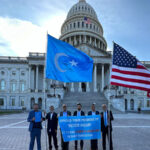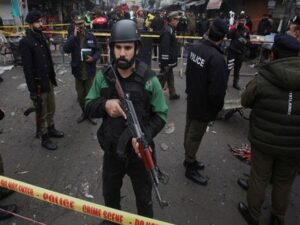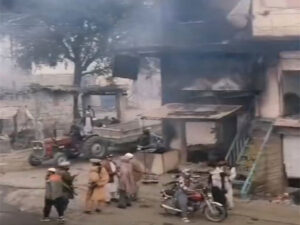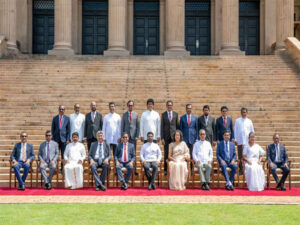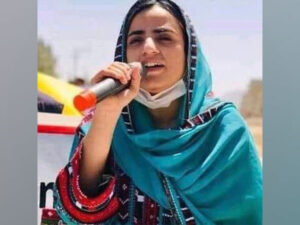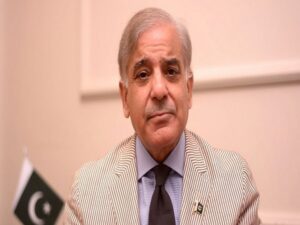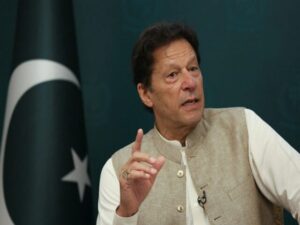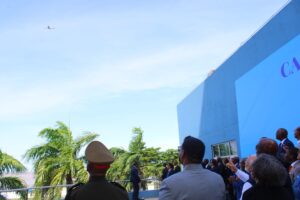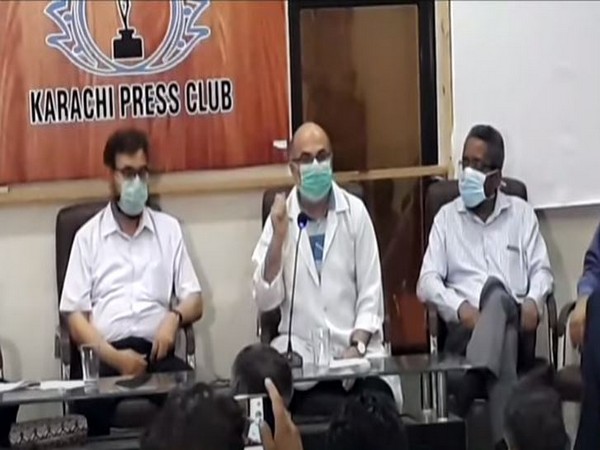
Doctors belonging to the Pakistan Medical Association holding an emergency meeting over Covid-19 situation in the country on Wednesday
Karachi [Pakistan], April 23 (ANI): A group of Karachi’s leading doctors , belonging to the Pakistan Medical Association (PMA), on Wednesday, urged the government and religious leaders to continue to abide by stricter precautionary measures to control the rapid spread of the highly contagious infection across the country.
Painting a sobering picture of the on-ground realities faced by frontline workers in the fight against coronavirus, while addressing the emergency briefing, Dr Saad Niaz, a gastroenterologist at the Dow University of Health Sciences, said that it was important to remember the outbreak is foremost a health issue, Geo News reported.
“This is a medical problem which [of course] has its resulting economic and social effects. But we need to understand that this is nonetheless primarily a medical issue” “From April 16 to April 21, we went from 6,772 patients to 9,464 patients, which is a near 40 per cent increase […] an increase by 2,692 patients.
If you count patients from February 25, we took time in reaching 2,000 patients,” he said. The doctors regretted that there was unfortunately the impression that this it was not as serious an issue in Pakistan as in other countries. “Sindh had initiated a lockdown but the restrictions were not followed properly.
The restrictions in entire Pakistan have become a joke. People are accumulating in large groups at ration stores, vehicles are continuously running on streets,” said Ansar Shehzad, Secretary-General at the PMA.
“We know that people are really worried due to the situation which has occurred just before the Ramazan but they need to understand the danger. Other countries have already banned congregation at the mosques and other places across the country.
We need the people to cooperate with us,” “Religious leaders should understand that saving lives is most important during epidemic spread. They should encourage people from any aggregation in mosques. It may be difficult for the people but the time requires it. The government should use its facilities, NGOs should check every place wherever relief is required,” Shehzad added.
The doctors also drew attention to the fact that more and more medical practitioners are getting affected by the virus each day. “We are already very under-equipped when it comes to our healthcare. We don’t have what it takes to fight this,” Dr. Naz said, citing lack of COVID-19 specific facilities and personal protection equipment for doctors throughout the country.
“We will have great difficulty in the coming days such as refusal to admit patients because of no beds,” he said. “The severity [of the outbreak] is much more than what we think already.
All experts think this will blow out of control over the next two to four weeks. And with non-COVID patients coming in, the hospitals will have to be closed [to more patients].”
According to media reports, the doctorshave also written a letter pleading with the country’s religious clerics to reverse the decision of leaving mosques open during Ramazan warning it could result in an explosion of Covid-19 cases as numbers are already on the rise at an increased rate throughout the country.
Pakistan President Arif Alvi had last week announced that neither the state machinery nor clerics would stop citizens from visiting mosques as the government accepted almost all demands of the clerics related to the holding of Friday, Taraweeh and daily congregational prayers with the condition of social distancing and other precautionary measures.
Provincial governments in Pakistan have imposed restrictions on mosque gatherings since the COVID-19 outbreak began, allowing no more than five people to be present.
But the measures have provoked a backlash in the country, with police officers who tried to enforce them sometimes facing violent resistance. A sharp increase in COVID-19-related deaths has been recorded in Pakistan this week. More than 200 people have died, with over 10,513 infections recorded as of Thursday. (ANI)




